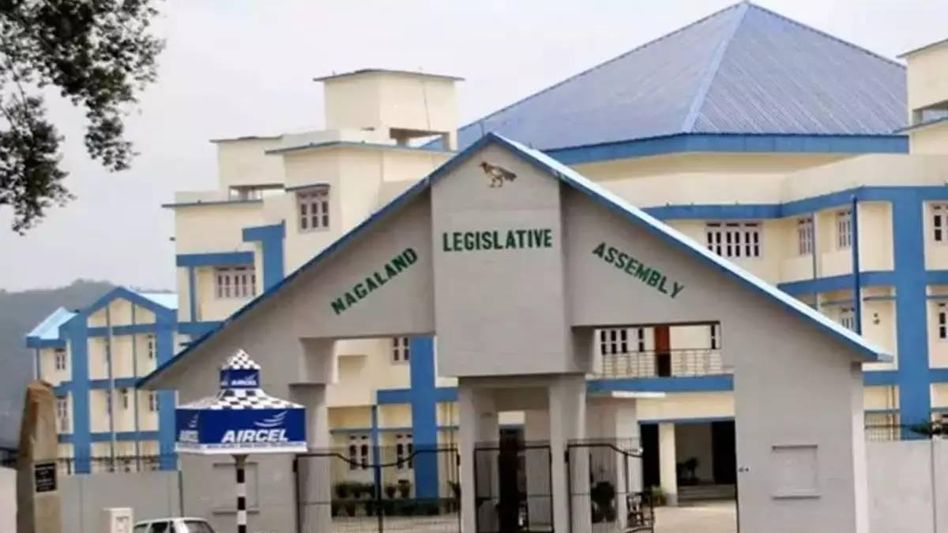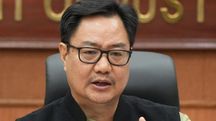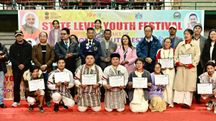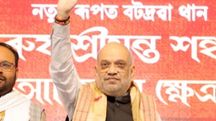Nagaland Assembly passes historic bill reserving one-third of urban local body seats for women
The Nagaland Assembly has made a significant stride towards gender equality by passing a historic bill. This bill reserves one-third of the seats for women in urban local bodies.
 Nagaland Assembly passes historic bill reserving one-third of urban local body seats for women
Nagaland Assembly passes historic bill reserving one-third of urban local body seats for womenThe Nagaland Assembly on November 9 unanimously passed the Nagaland Municipal Bill 2023 during an emergent session on Thursday, reserving one-third of seats in urban local bodies (ULBs) for women. The decision comes after a long-standing debate and numerous attempts to reach a consensus on the matter.
Chief Minister Neiphiu Rio, while presenting the bill, highlighted that the provisions related to taxes on land and buildings have been excluded from the new legislation. The one-third reservation for women in ULBs was deemed necessary to adhere to the clear directions of the Supreme Court and was also accepted by apex tribal bodies in the state.
However, the bill does not include the provision for one-third reservation of the offices of the chairperson in ULBs for women, which was part of the earlier Municipal Act.
Chief Minister Rio expressed, "This law is not the end, but only a beginning," emphasizing that it is time for women to actively participate and contribute to the administration of urban local bodies.
The decision to pass the Nagaland Municipal Bill 2023 was prompted by several attempts over the past two decades to hold ULB elections in Nagaland, which were marred by unfortunate incidents. The Select Committee, consisting of seven members of the House and led by Deputy Chief Minister T.R. Zeliang, examined the bill and recommended the incorporation of additional clauses.
One of the recommendations is that only indigenous inhabitants of the state should be eligible to become members of any municipal or town council. Additionally, it was proposed that the Municipal Act should be reviewed periodically every 10 years, aligning with the views of many Civil Society Organizations (CSOs).
Nagaland, which may be a late starter in the process of urbanization, has seen rapid urbanization in recent years, with 39 urban local bodies now in the state. The government aims to provide the growing urban population with the necessary infrastructure and amenities through local self-governance.
With the passage of the new Nagaland Municipal Bill 2023, it is expected that ULBs will be better administered, more developed, organized, clean, and beautiful.
All political parties in the Assembly, including NDPP, BJP, NCP, NPP, LJP (Ram Vilas), Naga People's Front, RPI (Athawale), JD(U), and Independent, participated in discussions and supported the bill's passage.
Following the unanimous approval of the bill, the State Election Commission is expected to announce the dates for ULB elections soon.
Despite the historic passage of the bill, the government will continue discussions with tribal bodies that oppose the 33% women reservation, such as the Ao Senden from Mokokchung district.
ULB elections in Nagaland had been long overdue, with the last polls held in 2004. Delays were initially due to unresolved Naga peace talks, followed by opposition to the 33% women reservation, as directed by the Supreme Court, by various tribal bodies.
The Assembly, during its March session, repealed the Nagaland Municipal Act, 2001, and embarked on crafting a new law that incorporates the views of tribal bodies and civil society organizations.
Tribal bodies had been opposed to women's reservation, citing concerns about its compatibility with Naga customary practices. Additionally, they had objections to the proposed tax on land and properties, claiming it contradicted Article 371(A) of the Indian Constitution, which guarantees special rights to Nagas on land and property.
However, the government convened a consultative meeting on September 1, where it was decided to hold ULB elections with the women's quota and introduce the new bill in the monsoon session of the Assembly.
The Assembly Select Committee held a consultative meeting on November 6 with apex tribal bodies, including the Eastern Nagaland Peoples’ Organisation, Central Nagaland Tribes Council, and Tenyimia Union Nagaland, which led to a consensus in favor of passing the new bill.
Copyright©2025 Living Media India Limited. For reprint rights: Syndications Today









